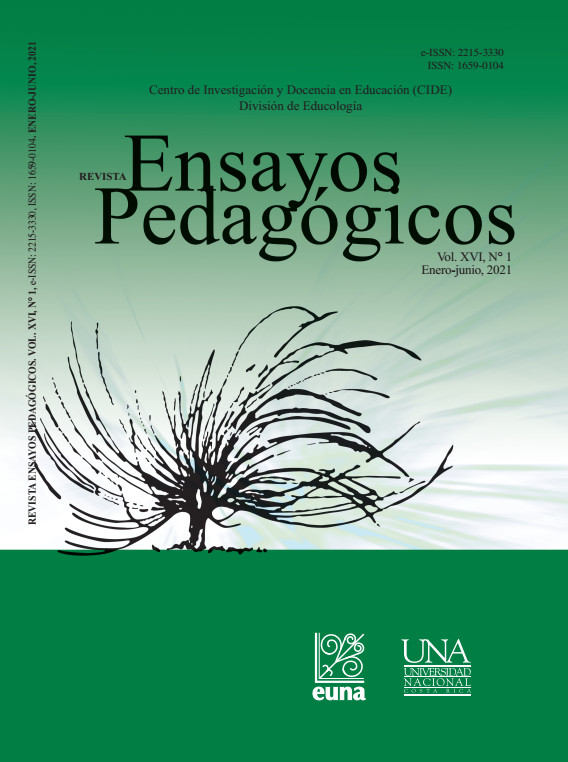Fourth-Year Student Reflection of their Learning Process in the English Teaching Major at Universidad Nacional: A Case-Study of their Perception
DOI:
https://doi.org/10.15359/rep.16-1.14Palabras clave:
language learning, students' perception, English as a Foreing Language, motivation, teaching strategies, teaching processesResumen
This research was conducted with a group of 37 senior students from the English Teaching major at Universidad Nacional (UNA) in 2018, as a way of getting some important feedback of their learning process perception in order to improve the study program’s scope and design. The main objective was to recognize the strengths and weaknesses of the major directly from students’ voices to define which areas need improvement as valuable input to be considered in a future curricular redesign that could meet UNA’s standards and professional profiles. The methodological strategy used included interviews and questionnaires, as well as the analysis of theories on language learning and teaching and affective and motivational factors in order to analyze if the content included in the major’s curriculum has fulfilled students’ expectations towards their professional demands. Some of the conclusions show students’ high degree of satisfaction towards the major; however, they mention important weaknesses on evaluation procedures and on content. These findings become a valid starting point to create a future introspective exercise considering some improvements this program should undergo in a future redesign process. This study could be replicated in other university majors that want to improve their own academic offer.
Referencias
Ausubel, D. (2000). The Acquisition and Retention of Knowledge: A Cognitive View. Springer Publishers. https://doi.org/10.1007/978-94-015-9454-7
Canals, L. (2017). Instruments for gathering data. In E. Moore & M. Dooly (Eds), Qualitative approaches to research on plurilingual education (pp. 390-401). Research-publishing.net. https://research-publishing.net/book?10.14705/rpnet.2017.emmd2016.9781908416476
Cavanagh, S. (2016). The Spark of Learning : Energizing the College Classroom with the Science of Emotion (Vol. First edition). West Virginia University Press.
Creswell, J. (2013). Qualitative Inquiry & Research Design: Choosing Among the Five Approaches. SAGE Publications.
Krashen, S. (1986). The Input Hypothesis Issues and Implications. Longman.
Rogers, C. (1977). Carl Rogers and Humanistic Education. http://www.sageofasheville.com/pub_downloads/CARL_ROGERS_AND_HUMANISTIC_EDUCATION.pdf
Schûtz, R. (2019). Stephen Krashen’s Theory of Second Language Acquisition. https://www.sk.com.br/sk-krash-english.html
Sole, Y. (1994). The Input Hypothesis and the Bilingual Learner. Bilingual Review, 19(2), 99–110.
Universidad Nacional. (2015). Cuestionario Estudiantes Regulares (RO.2). Autoevaluación de la carrera de Bachillerato en la Enseñanza del Francés [Unpublished manuscript]. Escuela de Literatura y Ciencias del Lenguaje-División de Educología
Universidad Nacional. (2018). Informe de Autoevaluación para reacreditación. Bachillerato en la Enseñanza del Inglés [Unpublished manuscript]. Escuela de Literatura y Ciencias del Lenguaje-División de Educología.
Universidad Nacional. (2019). Ámbito institucional. https://www.transparencia.una.ac.cr/index.php?option=com_content&view=article&id=298&Itemid=742
Publicado
Cómo citar
Número
Sección
Licencia
La Revista Ensayos Pedagógicos está suscrita a la Licencia Creative Commons Atribución-NoComercial-SinDerivadas 4.0 Internacional, lo cual implica la posibilidad de que tanto las personas autoras como las personas lectoras puedan, de forma gratuita, descargar, almacenar, copiar y distribuir la versión final aprobada y publicada (post print) del artículo, siempre y cuando se realice sin fines comerciales, no se generen obras derivadas y se mencione la fuente y autoría de la obra. Asimismo, la Revista Ensayos Pedagógicos declara que toda persona autora conservará a perpetuidad los derechos de autoría de su ensayo o artículo.









